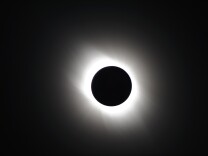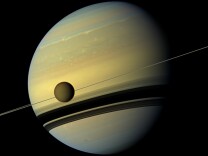
-
Listen Listen

Jacob Margolis
What I cover
I cover science, with a focus on environmental stories and disasters, as well as investigations and accountability.
My background
I created, wrote and hosted the LAist Studios podcasts, The Big One: Your Survival Guide and The Big Burn: How To Survive In The Age of Wildfires. I was part of the team that won the 2021 Investigative Reporters and Editors Audio Journalism Award for the series "Hot Days: Heat’s Mounting Death Toll On Workers In The U.S. "Most recently, I’ve published investigations into large scale illegal dumping in L.A. County and previously unreported heavy metal concentrations in fire retardants.
My goals
To uncover how science, policy, and power intersect — so people have the information they need to hold decision-makers accountable and protect their communities.
Best way to reach me
You can reach me by email: jmargolis@laist.com. Or for encrypted communications, I'm on Signal: @jacobmargolis.1.
Stories by Jacob Margolis
-
The culprit is particulate matter 1/25th the size of a human hair that enters the bloodstream and wreaks havoc on critical organs.
-
Scientists hope that if they can figure out why jellyfish sleep, they might be able to figure out why animals, including humans, sleep too.
-
Cassini's final signal was received at JPL around 5 a.m. Friday morning, signaling the "end of mission" call, followed by cheers and even some tears.
-
While it sounds bad that scientists are crashing the Cassini spacecraft into Saturn, the final move is arguably one of the most important of the mission.
-
Asteroid Florence is 2.7 miles wide, one of the largest known near-Earth objects ever spotted, and it'll pass by 4.4 million miles from Earth September 1.
-
Once the virus enters the bloodstream of a pregnant woman it tricks the immune system, suppresses it and spreads quickly.
-
On Aug. 21, the moon will cross in between the earth and the sun, the land will darken, the temperature will drop and we'll see an astronomical phenomenon.
-
Saturn's sixth largest moon is a winter wonderland, always covered in a fresh layer of snow. If you had a spacesuit and gnarly set of skis, you might be good to go.
-
New studies predict heat waves and droughts will become more common as temperatures continue to rise. Rising seas are also likely swamp low-lying areas.
-
As temperatures rise and pollution increases, more people could suffer heart attacks, stroke, lung cancer and more diseases.
-
Scientists say that they've come up with an approach to cancer that's less atomic bomb and more surgical strike, using stem cells.
-
It's so cold on Titan that its equator is nothing but dunes as far as the eye can see. But, they're not made of sand. They're made of little chips of water.













